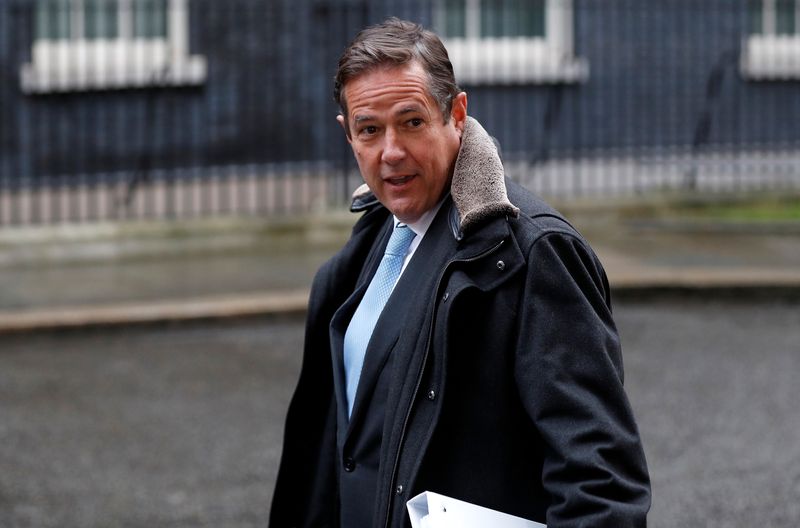By Huw Jones and Sinead Cruise
LONDON (Reuters) - Ex-Barclays CEO Jes Staley faces a ban from senior roles in financial services and a 1.8 million pound ($2.21 million) Financial Conduct Authority (FCA) fine for allegedly misleading it over his relationship with Jeffrey Epstein.
"The FCA has found that Mr Staley recklessly approved a letter sent by Barclays (LON:BARC) to the FCA, which contained two misleading statements, about the nature of his relationship with Jeffrey Epstein and the point of their last contact," it said.
Disgraced financier Epstein killed himself in a New York jail in 2019 while awaiting trial on sex-trafficking charges.
Staley said that he was "very disappointed" by the FCA's decision, which he would continue to challenge.
"If I had known who JE really was, there is absolutely no doubt that I wouldn't be in the position I am in today," he said in a statement issued by his law firm Arnold & Porter.
The FCA said in a statement on Thursday detailing its findings that they were provisional as Staley had appealed.
Barclays said that after considering the FCA's findings, its remuneration committee had decided that Staley should be ineligible for or forfeit bonuses and long-term incentives totalling 17.8 million pounds.
The FCA said a chief executive needed to exercise sound judgement and set an example to staff.
"Mr Staley failed to do this. We consider that he misled both the FCA and the Barclays Board about the nature of his relationship with Mr Epstein," said Therese Chambers, FCA joint executive director of enforcement and market oversight.
'MOST CHERISHED'
The FCA asked Barclays in August 2019 to explain what it had done to satisfy itself that there was no impropriety in the relationship between Staley and Epstein.
"In its response, Barclays relied on information supplied by Mr Staley. Mr Staley confirmed the letter was fair and accurate," the FCA said. "In reality, in emails between the two Mr Staley described Mr Epstein as one of his 'deepest' and 'most cherished' friends," it added.
The letter had also said Staley ceased contact with Epstein well before he joined Barclays, even though Staley had been in contact with Epstein in the days leading up to his appointment as CEO being announced in October 2015, the FCA said.
"The FCA has found that Mr Staley was aware of the risk that his association with Mr Epstein posed to his career," it added.
In its decision notice, the FCA said Staley and Epstein discussed Barclays' approach to him for the CEO role multiple times between July and October 2015, despite Staley telling Epstein in an email that the matter was "very confidential".
In an email titled 'Friendship' in October 2015, Staley wrote: "You never wavered in our friendship these last three years. That means a lot too (sic) me. […] Cross your toes!!!"
Staley and Epstein also discussed press enquiries about their links in emails, the notice said.
Between January 2013 and October 2015, the FCA notice said the two men exchanged almost 600 emails. One from Staley to Epstein in January 2015 read: "The strength of a Greek army was that its core held shoulder to shoulder, and would not flee or break, no matter the threat. That is us."
Staley told the FCA that he had sought "counsel" from a "couple of people" about the Barclays approach and his communications to Epstein reflected the way he wrote to business contacts, the watchdog's 79-page notice said.
Barclays said it was not the subject of the FCA investigation, with which it cooperated fully, and the notice did not include any findings against the British bank, any of its directors or employees.
Last month, JP Morgan Chase (NYSE:JPM) said it had reached a confidential settlement with Staley, who formerly served as an executive in its private banking unit and who JP Morgan had blamed for keeping Epstein as a client.
JP Morgan also agreed to pay $75 million to settle claims by the U.S. Virgin Islands that the bank aided Epstein's sex trafficking. JP Morgan did not admit any wrongdoing.

($1 = 0.8129 pounds)
(This story has been refiled to add the dropped word 'was' in paragraph 4)